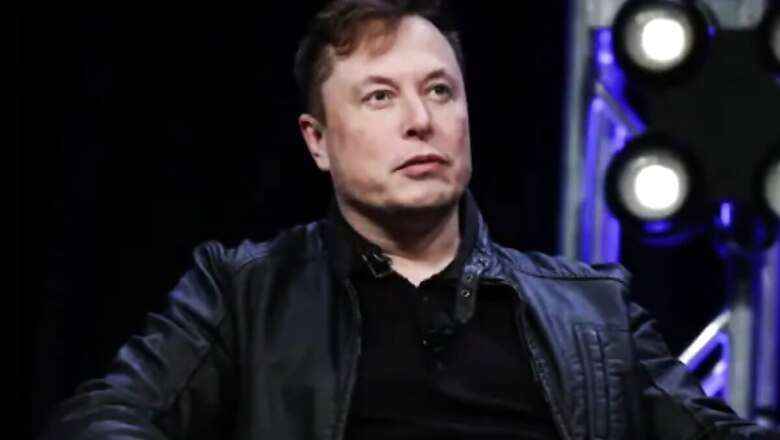
views
Tesla chief Elon Musk promised “insane" battery news at a streamed event after the company’s annual shareholders’ meeting this week. Speculation included that Tesla will announce it has come up with ways to pack more energy into battery cells, slash production cost and dramatically extend battery life.
Musk offered neither. Instead, he promised over the next several years to slash battery costs in half with new technology and processes and deliver an “affordable" electric car.
“In three years . . . we can do a $25,000 car that will be basically on par (with), maybe slightly better than, a comparable gasoline car," Musk said.
Musk acknowledged that Tesla does not have its ambitious new vehicle and battery designs and manufacturing processes fully complete. Tesla has frequently missed production targets set by Musk.
To help drive down vehicle cost, Musk described a new generation of batteries that will be more powerful, longer lasting and half as expensive than the company’s current cells.
Tesla’s new larger cylindrical cells will provide five times more energy, six times more power and far greater driving range, Musk said, adding that full production is about three years away.
To help reduce cost, Musk said Tesla planned to recycle battery cells at its Nevada “gigafactory," while reducing cobalt — one of the most expensive battery materials — to virtually zero. It also plans to manufacture its own battery cells at several highly automated factories around the world.
Tesla will produce the new battery cells initially on a new assembly line near its vehicle plant in Fremont, California, with planned output reaching 10 gigawatt-hours a year by the end of 2021. Tesla and partner Panasonic Corp now have production capacity of around 35 gWh at the Nevada battery “gigafactory."
As automakers shift from horsepower to kilowatts to comply with stricter environmental regulations, investors are looking for evidence that Tesla can increase its lead in electrification technology over legacy automakers who generate most of their sales and profits from combustion-engine vehicles.
While average electric vehicle prices have decreased in recent years thanks to changes in battery composition, they are still more expensive than conventional cars, with the battery estimated to make up a quarter to a third of an electric vehicle’s cost.
Some researchers estimate that price parity, or the point at which electric vehicles are equal in value to internal combustion cars, is reached when battery packs cost $100 per kilowatt hour (kWh).
Tesla’s battery packs cost $156 per kWh in 2019, according to electric vehicle consulting firm Cairn Energy Research Advisors.
In a tweet earlier this month, Musk promised “many exciting things will be unveiled on Battery Day." He finished the message with a lightning bolt emoji.
“We know Tesla is going to promote its technology and needs to if Semi and Cybertruck are the next platforms both requiring high density solutions," Canaccord analyst Jed Dorsheimer said in a note to investors.
“But like most things Tesla, the devil will be in the details, which sadly will take some time to play out."
Along with making electric cars, Tesla has a battery division devoted to rechargeable power cells for its vehicles, as well as storage packs for electricity at homes, businesses or disaster scenes.
Musk said in a tweet on Monday that Tesla intends to increase battery purchases from Panasonic, LG and China-based CATL.
“However, even with our cell suppliers going at maximum speed, we still foresee significant shortages in 2022 and beyond unless we also take action ourselves," Musk said.
Tesla is already ahead of other automakers when it comes to batteries, the key to the future of electric vehicles.
Colorful founder and chief executive Musk has a pattern of envisioning wondrous innovations, from colonies on Mars to meshing minds with computers and people zipping along underground through “hyperloop" tunnel systems.
With Inputs from Reuters, Relaxnews




















Comments
0 comment